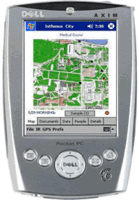What counts as authentific scientific inquiry? A Summary of Chinn and Malhotra's seminal paper
What is authentic scientific inquiry?
The following summary is based on Chinn and Malhotra's "Epistemologically Authentic Inquiry in Schools: A Theoretical Framework for Evaluating Inquiry Tasks." Based on a couple of expert/novice studies, Chinn provides a framework for evaluating what counts as authentic reasoing in science inquiry. His main arguments are based on the following assumptions:
1. Authentic reasoning in science is the way scientists think and do in their scientific inquiry.
2. Authentic reasoning needs to be developed in schools because non-authentic, simple task-based inquiry leads to oversimplification and pseudoscience; therefore it also hampers students' ability to reason and generates false epistemology about science.
3. We can teach authentic reasoning by studying how scientists reason.
Based on these assumptions, he proposes
There is a need to develop school tasks that come closer to the cognitive processes and epistemology of real scientific inquiry.
===================================================================
The following passages will briefly introduce
1. What counts as authentic scientific inquiry
2. How do we analyze scientific inquiry
3. How to develop more authentic reasoning in schools
===================================================================
Part I: What counts as authentic scientific inquiry
Authentic scientific inquiry
Chinn argues that science standards (e.g., AAAS, 1993; National Research Council, 1996) pointed to important features of "authentic inquiry," but they DO NOT develop an analysis in detail(Chinn and Malhotra, 2001). Hence he tries to develop a framework that explains the nature of authentic scientific inquiry (Chinn and Malhotra, 2001)
National Science Education Standards http://www.nap.edu/readingroom/books/nses/html/
Simple Inquiry Tasks
According to Chinn, authentic scientific inquiry "refers to the research that scientists actually carry out." Since authentic scientific inquiry is too complicated to be implemented in classrooms, the goal of science instruction in shool is to develop relatively simple inquiry tasks which capture core component of scientific reasoning. However, Chinn argues that most simple inquiry tasks (i.e. textbooks, educational software and websites of science activities) available in educational settings are not authentic and they don't resemble authentic science.
Authentic scientific inquiry(ASI) v.s. Simple Inquiry Tasks (SIT)
Authentic scientific inquiry is different from simple inquiry task (which is prevelent in classroom science pedagogy) in at least two aspects: the cognitive processes and epistemology.
Difference in Cognitive Process: Six Fundamental Cognitive Scientific Processes (Authentic Reasoning)
- generating a research question ( In SIT, students are told what the RQ is)
- designing a study to address the research question (The difference can be found in (a) selecting variables, (b) planning prodedures, (c) controlling variables and in (d) planning measures. In SIT, for example, students are told the variables to investigate while in ASI, scientists select their own variables to study)
- making observations (guarding perceptual bias is seldom addressed in SIT while scientists employ specific method to avoid perceptual bias)
- explaining results (scientists usually need to (a) transform observations (i.e. raw data), (b) find flaws in design, experiment or in hypothesis, (c) reason indirectly, (d) generalize and (e) use borad reasoning strategies)
- developing theories (In ASI, scientists focus on developing theories while in SIT students usually focus on observation and experiment. Students usually get no experience in generating theoretical explanations on the basis of evidence. Also, scientists will synthesize results from multiple studies to generate their theories)
- studying others' research (A scientist's knowledge is grounded in the work of other scientists)
Chinn's definition of epistemology:
"Epistemology refers to people's basic beliefs about what knowledge is and when it should be changed." (Well, I think my definition will be sort of different than his)Difference in Epistemology:
Chinn proposes that "simple inquiry tasks (SIT) assume an epistemology that is opposed to the epistemology of authentic sicencce. As a result, students who learn about scientific reasoning through SIT may actually learn a nonscientific epistemology."
1. Purpose of Research:
Scientists: to develop and refine theoretical models in response to evidence.
Students: to uncover easily observable regularities or salient structure of objects--Baconian gathering of facts about the world.
2.View of Science
Scientists: complicated view of science, seeking global consistency of data and theories
Students: overly simple view of science, seeking local consistency
3. Method
Scientists: interdependence between theory and method
Students: no critical reflection on method
4. Response to Anomalous Data
Scientists: many different legitimate responses to anomalous data, including changing theory, discounting the data, reinterpreting the data, etc.
Students: very limited...usually will respond by changing hypothesis
5. Nature of Reasoning
Scientists: involve uncertain judgements and heuristics...use a wide range of fallible heuristics
Students: use simple and often algorithmic strategies of reasoning
6.Social Construction of Knowledge
Scientists: build on each other's work...acquire knowledge by studying other scientists' work
Students: Do they even study other students' work?"Simple inquiry tasks may not only fail to help students learn to reason scientifically; they may also foster a nonscientific epistemology (simple, certain, algorithmic and surface meaning about scientific reasoning)"
Part II Analytic Tools
Models-Of-Data theory: An analytic tool for evaluating scientific inquiry
Definition
" According to models-of-data theory, an experiment of other forms of research can be represented as a model that integrates theoretical explanations with the observations and with the details of the data gathering procedures.(p.191)"
An analytic tool
The models-of-data theory proposes that "experiments and other forms of research can be represented as cognitive models." Analyzing the models would afford the reseachers to know the differences of cognitive process involved in authentic scientific inquiry and simple inquiry task.
Authentic scientific inquiry v.s. simple inquiry task
1. complexity vs simplicity
2. multiple measures vs single measure
3. inductive and analogical references vs single causal link
4. rich, complex models of data vs simple models of data
Part III How to develop more authentic reasoning for schools

1 Comments:
wow! You go!
Post a Comment
<< Home